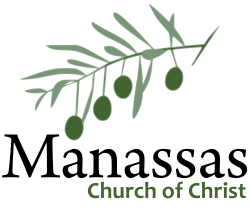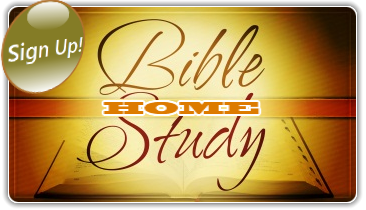Introduction:
- Our goal in this lesson is to set forth a general picture of the church's organization as revealed in the New Testament. This will help to correct any misconceptions we might have.
- This will help you to see where you fit into the organization of the local congregation and outline your responsibilities.
- We will see the duties of elders, deacons, preachers and teachers and the relationship of the new member to each one.
A. The need for organization is necessary in every field of endeavor:
- No government can stand, function or carry on its work without some organization. Success in business, in the Armed Forces and schools all depend upon an efficient and well planned organization.
- The organization of the church has been planned and executed by the wisdom of God. (Eph 3:8-10)
- Let's look at the government of the church:
- God - The Father is Supreme. (1 Cor 11:3; 1 Cor 15:24-27)
- Christ - All authority is given to Him. (Mt28:18; 17:5; Eph 1:20-23)
- Holy Spirit-Provider of all Truth. (Jn 14:26; 16:13)
- Apostles-Ambassadors for Christ-2 Cor 5:20 Guided by HS into all truth - Jn 16:13 Taught all things by HS - Jn 14:26 Given Authority by Jesus to Bind and Loosen - Mt 18:18 The Word Spoken and Written by the Apostles is authoritative - 2 Thes 2:15
- Elders - They have delegated authority ONLY. Their work is to/oversee the local congregation (Acts 20:17,28; 1 Pet 5:1-3; Heb 13:7,13)
- Terms used to described his office: Elder, presbyter - Acts 14:23; 1 Tim 4:1 Bishop, overseer - Acts 20:28; Tit 1:5-7 Pastor, shepherd - 1 Pet 5:1-4; Eph 4:11
- All of these terms are used to describe the same office. The various terms are used to describe the different phases of responsibility the elder has. Remember, the elder's authority is strictly on the local basis.
- Deacons - A deacon is a special servant under the elders. His primary function would be in regard to physical things. (1 Tim 3:8-13; Phil 1:1; Acts 6:1-6)
- Preacher/Evangelist/Minister - Several terms describing the work he accomplishes. He works under the eldership and has no special authority. He is not to be referred to as the "pastor" or "reverend". (Rom 10:14; 2 Tim 4:5; 1 Tim 4:6)
- Member’s \ Also called "saints, disciples, child of God, brethren, Christian". All under the oversight of the elders. (Eph 4:16; 1 Cor 12:27; Heb 13:7,17)
Our duties to the elders and to the local congregation.
- Our responsibility to the elders: Know and Respect them, to be in subjection, to honor and support them and to call them when needed. (1 Thes 5:12-13; Heb 13:17; 1 Tim 5:17-19; Jam 5:14)
- Our responsibility to the congregation: Recognize my personal accountability and responsibility to build up the body where I am a member. Every member working as in a physical body and in any army causes the body of Christ to grow and prosper!! (Eph 4:16; 1 Cor 12:12-27; Eph 6:10-18)
Conclusion:
**God designed the organization of the church by HIS Wisdom, not by men. God's pure pattern must be militantly maintained, free from corruption. We must observe and do all things according to the "Pattern"
**Things to avoid: "Pastor" system, "majority rule, Elders, deacons or preachers making laws where Christ has made none, Deacons taking authority over the elders.




